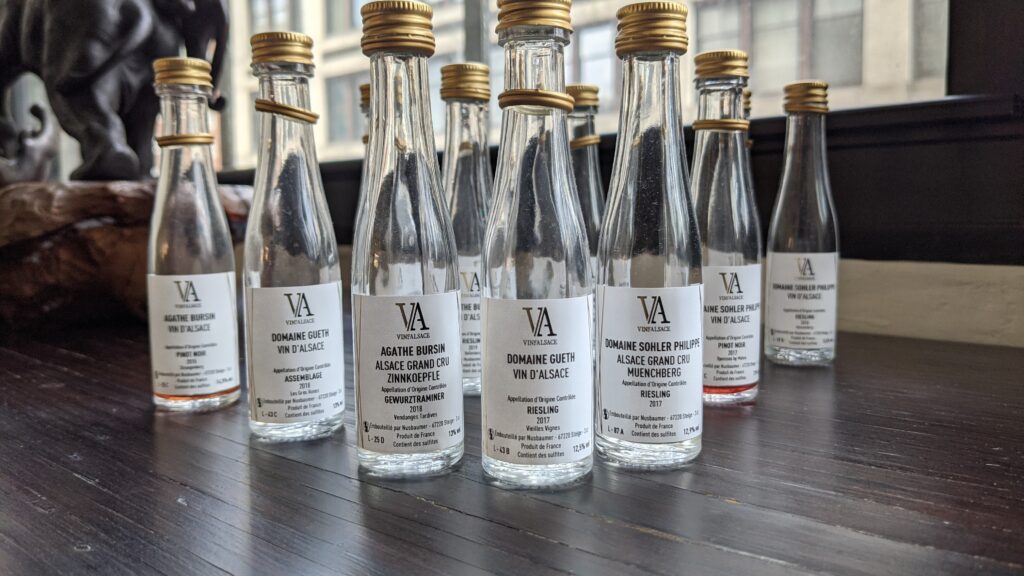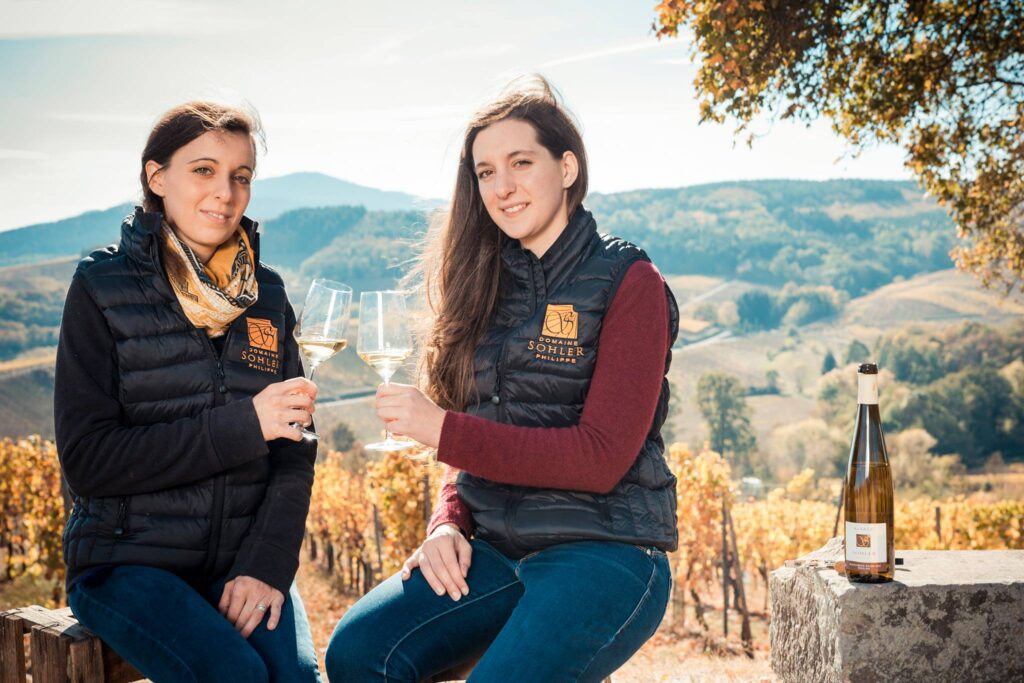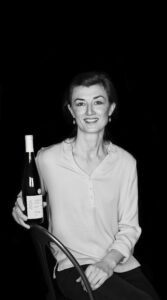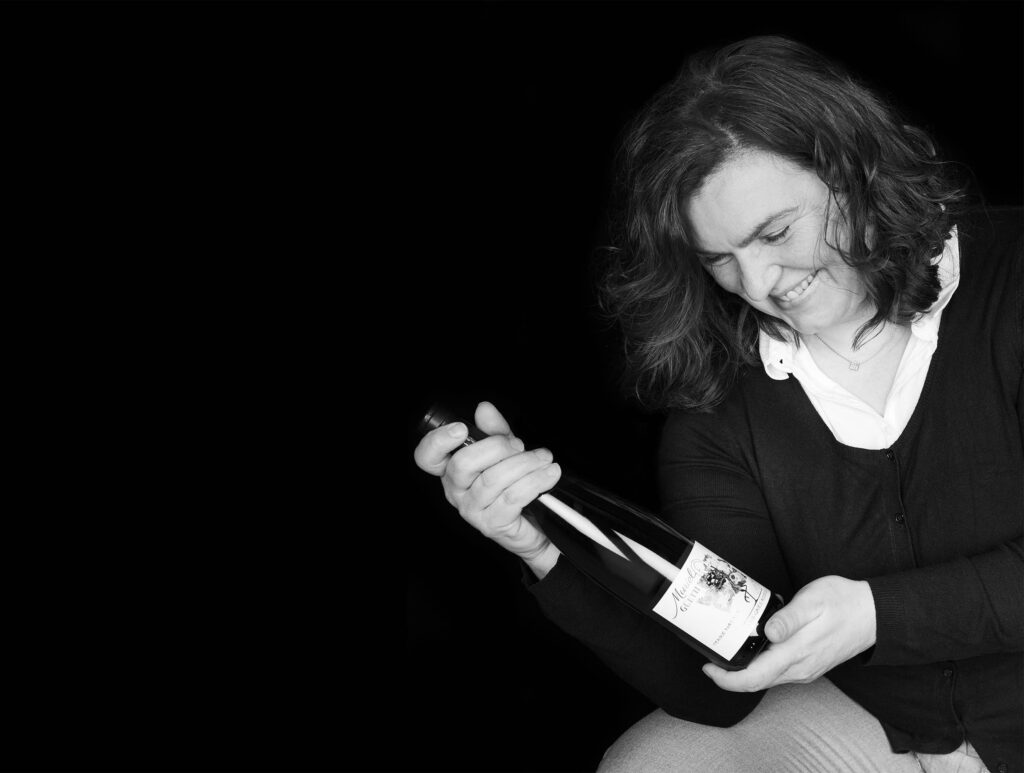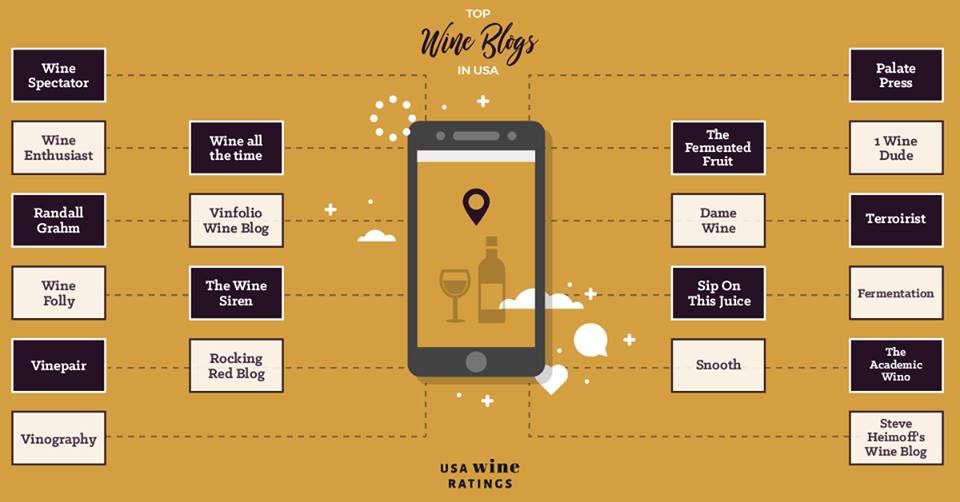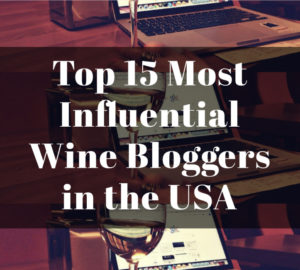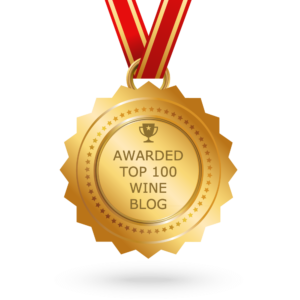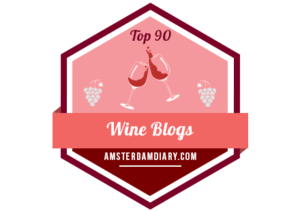In a little village within the wine region of Alsace in northeastern France, five three-year-old children gathered together for pre-school among a community of wine grape growers. The children were asked to draw pictures that represented what they wanted to be when they grew up and so four of the kids, all boys, drew tractors and vines as they wanted to be grape growers and winemakers like their fathers but the one little girl didn’t have winemaking parents and so she was curious about these pictures that the boys drew as well as their enthusiastic descriptions of their fathers’ job. “I want to work in the vineyards too!” the girl exclaimed but everyone else was dumbfounded by such a statement from a little girl as it was known during those times that it was the men who worked in the vineyards and winery.
Four decades have passed and that little girl, Agathe Bursin, grew into an accomplished winemaker who has some of her vines in the most coveted vineyard in her small village of Westhalten with only around 15 small wine producers that work outside of the large co-op wineries1 that is 12 miles from Colmar – known as the “Little Venice” of France. Agathe’s maternal grandparents were vineyard owners who were part of one of the local wine co-ops who had four children, two boys and two girls, and it was commonplace to leave vineyards to the male children. But Agathe said her grandparents were ahead of their time and they said, “Four children four parts” when it came to the inheritance of their vineyards. Agathe’s mother had no interest in maintaining vineyards so she allowed one of her brother’s to work her plots until Agathe told her that she wanted to become a winemaker and so her mother gave her the plots, seven acres in 2000 and eventually she would grow it to 17 acres – all farmed organically and some vineyards being quite steep.
After studying winemaking in Burgundy and refining her white winemaking skills while working for a producer in Chablis and then improving her ability to work with steep vineyards and various micro-plots by working with a producer in the Rhône Valley, she came back with a fierce determination to express the many different nuances in her vineyards that included the famous Zinnkoepflé Grand Cru vineyards in Westhalten.
Changes Implemented by the Women of Alsace
The very fact that Agathe went against the grain by not only saying that she wanted to become a winemaker over 20 years ago but that she also wasn’t going to just be part of a co-op as she would make her own wines under her own label Agathe Bursin makes her a positive force for change.
Yet she is not the only woman making changes as 34-year-old Lydie and 29-year-old Marine Sohler completely took over their family winery, Domaine Sohler Philippe, in 2016. These sisters divide duties by having Lydie in the winery as the winemaker and Marine looking over the vineyards as vineyard manager in their small town of Nothalten, Alsace. Lydie’s winemaking philosophy mainly focuses on allowing their white wines to age on their fine lees (sediment after fermentation) in the neutral stainless steel vessels for several weeks, as she believes the aromatics become more complex, with the exception of their Clos Rebberg Pinot Gris and their red wine, Pinot Noir Mateo, as they both age in barrel for 12 to 18 months. They also ferment each plot in its own tank whether it is from a Grand Cru vineyard or a lieu-dit (a plot with a traditional name although not officially classified). One of the biggest changes is their first attempt at an orange wine, a white wine that is fermented on the skins, that is a blend that includes the skin and juice of the Riesling and Sylvaner grapes but only the juice of the Pinot Gris grapes. Lydie and Marine “love” orange wines but their father and mother are not so sure that it is a good idea and so their 2020 vintage of their orange wine will be a true test to show their parents that they can make a “good orange wine” and Lydie expressed that it has been her favorite project as both herself and Marine have worked together in the cellar making it and typically that doesn’t happen.
An orange wine is also made by Mélanie Pfister at her family’s newly renamed estate called Domaine Mélanie Pfister in Dahlenheim, Alsace and her orange wine is a Pinot Gris that receives two weeks of skin contact that is called ‘Macération’ and it had its first vintage in 2018. But that is not the only change that Mélanie has made as she has had the great fortune to be able to do internships at some of the top wine estates in the world such as Méo-Camuzet in Burgundy, Cheval Blanc in Bordeaux and Zind-Humbrecht in Alsace just to name a few. Some of her takeaways from these internships include learning biodynamic practices from Zind-Humbrecht, and Mélanie is currently converting her vineyards over to biodynamic after she has been organic for many years and she will be certified organic starting with the 2021 vintage, as well as the importance of blending which she learned from Cheval Blanc leading to her creation of ‘Mel’ (representing her name Mélanie and the French word mélange meaning mixture) that is a white blend of Riesling, Pinot Gris, Gewürztraminer and Muscat.
Although Alsace is known for their white wines, they also make red wines from Pinot Noir as well and since Mélanie studied at Méo-Camuzet, known for making some of the top Pinot Noir wines such as their Grand Cru ‘Clos de Vougeot’, she decided once she came back to her family estate that her first task would be to make the Pinot Noir. “Okay papa I will take charge of the Pinot Noir”, Mélanie announced to her father. But her father said instead they would split the Pinot Noir plot and he would make his wine and she would make her wine and then they would compare and decide which one was better. Since Mélanie felt that Pinot Noir was more about “delicacy and subtlety” she would use a cooler temperature while fermenting and less extraction and her father agreed that her Pinot was better and she would take over the winemaking completely in 2008. Today she continues that relationship with Méo-Camuzet by buying used barrels from them which she uses for her Pinot Noir.
Mélanie is the first women to take over her family vineyards in eight generations and Muriel Gueth is also eighth generation and the first women to take over at her family estate Domaine Gueth which is located in Gueberschwihr, Alsace.
Muriel worked for a German wine producer who was organic back in the mid-90s and so when she came back to her family’s estate, working organically was a priority and today her estate is certified with the HEV (High Environmental Value) organization which allows a bit more freedom than being fully organic certified. Muriel is 100% organic but she has small plots that are surrounded by her neighbors’ plots who are not organic so she feels it would not be completely honest to become certified organic until her neighbors are also organic but she is hopeful that she will be certified in the future as many of her neighbors have started sustainable practices. When Muriel completely took over the winemaking in 1996, she still wanted to be respectful to her father and so she kept her father’s name Jean-Claude Gueth on the label as well as his traditional ways of blending different terroirs together for most of the wines. But finally in 2020 she started placing her own name on the single plot bottlings she has been working on for many years as her own personal project as she has found some of her vines, especially the old vines, have a distinctive expression that needs to be isolated so that specific plot can be expressed in the wine.
Changes Implemented by the Older Generation
But it wouldn’t be fair to talk about these changes without recognizing those that were initially implemented by the older generation. Certainly Agathe Bursin’s maternal grandparents were ahead of their time when they divided up their vineyard between their two boys and two girls making it possible for Agathe to have her own vineyards. Lydie and Marine Sohler credit their father for always having mostly organic practices and so for them it was a “small leap” to start the certification process.
Mélanie Pfister’s father also made it an easy leap for organics as well as he was a real pioneer by stopping the use of herbicides in the 1980s and it was her parents’ idea for her to change the name of their family estate to Mélanie Pfister as there was another Domaine Pfister that was started a while back and it created confusion on local restaurant lists. It was much harder for Mélanie to make this name change for the estate as she didn’t know if it was the right thing to do but her parents looked at it in a practical way and knew this was the best thing for the survival of their family estate. Muriel Gueth was always thankful that her parents had bought modern stainless steel tanks and a pneumatic wine press decades ago as it really helped her from the very beginning to make quality wine but most of all she appreciates how open-minded they were in trusting her so early on to take over the winemaking.
Agathe Bursin has a very strict philosophy of bottling one variety from a specific soil and never mixing, for example, one Riesling plot with another Riesling plot with different soil types. She very much believes in the idea of terroir as being ideally expressed by one grape from one soil. Yet back in 2001, she received a call from a friend who inherited an old vineyard, around 75 years old, but her friend didn’t know what to do with it because she worked in a hospital and she had no desire to manage a vineyard. Agathe said she would buy it but her friend quickly warned her that she would have to replant the vineyard as it was a mess with various varieties all mixed in with each other. Although Agathe already had her own firm opinions of how vineyards should be planted, she was curious and decided to make wine from the vineyard before replanting. The vineyard is a composite of five Muscat vines, 15 Pinot Gris, 20 Riesling, 20 Gewürztraminer, 20 Sylvaner, 20 Pinot Blanc and two vines of Pinot Noir and to Agathe’s amazement all of the vines ripened at the same time which is shocking as outside of this vineyard these different varieties ripen at various times. She even says there is a Muscat vineyard right next to this co-plantation vineyard (field blend) planted at the same time that ripens at a different time as the Muscat does in the co-plantation vineyard.
It is a complete mystery to Agathe how it is possible that all of the varieties in this co-plantation vineyard ripen at the same time yet the one thing she does know is that she loves how all these varieties are expressed in one wine and she is so happy that she decided to wait until she made wine from it before she pulled out the vines. And it is a wonderful lesson that one should not just change for the sake of change as progress and evolution should ideally be creating a better situation for all involved such as the progress of all of these family estates that are now run by women; women who just happened to be the ideal choices to take on the responsibility of their families’ vineyards as well as being very mindful and thankful of the gifts that were passed down from the generations that preceded them.
***Originally published in Forbes: https://www.forbes.com/sites/cathrinetodd/2021/08/07/women-making-changes-in-their-family-wine-estates-in-alsace-france/?sh=779c63675c3b

Photo Credit: Cathrine Todd
Agathe Bursin Wines
2019 Agathe Bursin, Riesling ‘Bollenberg’, Vin d’Alsace: Wet stones, saline minerality and grapefruit on the palate with mouth watering acidity.
2019 Agathe Bursin, Zinnkoepflé Grand Cru Riesling: Floral, salted lemon rind with juicy peach mid-palate that had good weight and a long finish with fierce acidity.
2018 Agathe Bursin, Zinnkoepflé Grand Cru Gewürztraminer, Vendages Tardives: Rose oil, lychee syrup, nice amount of sweetness with some Turkish delight and apple strudel notes and a lush texture. 95 g/l residual sugar.
2018 Agathe Bursin, Pinot Noir ‘Strangenberg’, Vin d’Alsace: Earthy with rich fruit of blackberry and tea leaves finishing with a note of smoldering embers.
Domaine Sohler Philippe Wines
2017 Domaine Sohler Philippe, Alsace Grand Cru ‘Muenchberg’ Riesling: Intense peach aromas and ripe stone fruit flavors on the nose with some flinty minerality with good weight, vivid fruit (nectarine and peach) and racy acidity.
2018 Domaine Sohler Philippe, ‘Heissenberg’ Riesling: White flowers and star anise with lots of wet stones and a flintiness on the palate; lean with sharp acidity and notes of lemon zest.
2017 Domaine Sohler Philippe, Gaïa White Blend: 60% Riesling from a mixture of volcanic and sandstone soil, 20% Muscat from sandstone soil and 20% Pinot Gris from marly sandstone soil. Three different grape varieties from three different soils; a mix of floral, white pepper and golden apples that had a lean palate – linear.
2017 Domaine Sohler Philippe, Pinot Noir: Earthy and dark fruit on the nose with bright acidity, black cherries and dried herbs on the palate with a light body and fine tannins with hints of forest floor.
Domaine Gueth Wines
2017 Domaine Gueth, Riesling, ‘Original’sace’: Stony nose with lime juice and citrus blossom with smoky minerality.
2017 Domaine Gueth, Riesling, Vieilles Vignes (Old Vines): Richer flavors with lemon meringue, white flowers and electric acidity with plenty of fleshy peach flavors on the palate to balance it out.
2018 Domaine Gueth, Les Grès Roses: A white blend of Pinot Blanc and Auxerrois from ‘Ruescht’ plot and Pinot Gris from ‘Aschqeg’ plot that both are a mixture of clay marl and sandstone soils – the pure pink sandstone terroir of the Vosges. Round body, floral with white strawberries and a saline finish.
2017 Domaine Gueth, Sylvaner, Vieilles Vignes (Old Vines): Broad body with hints of almond, toasted spices with broken limestones giving it minerality.
***Wasn’t able to sample recent vintage of Domaine Mélanie Pfister wines but I have had her wines many times in the past and they have always been extremely impressive.
Footnote:
1A winemaking co-op is typically a group of vineyard owners working together to create and sell wine.

